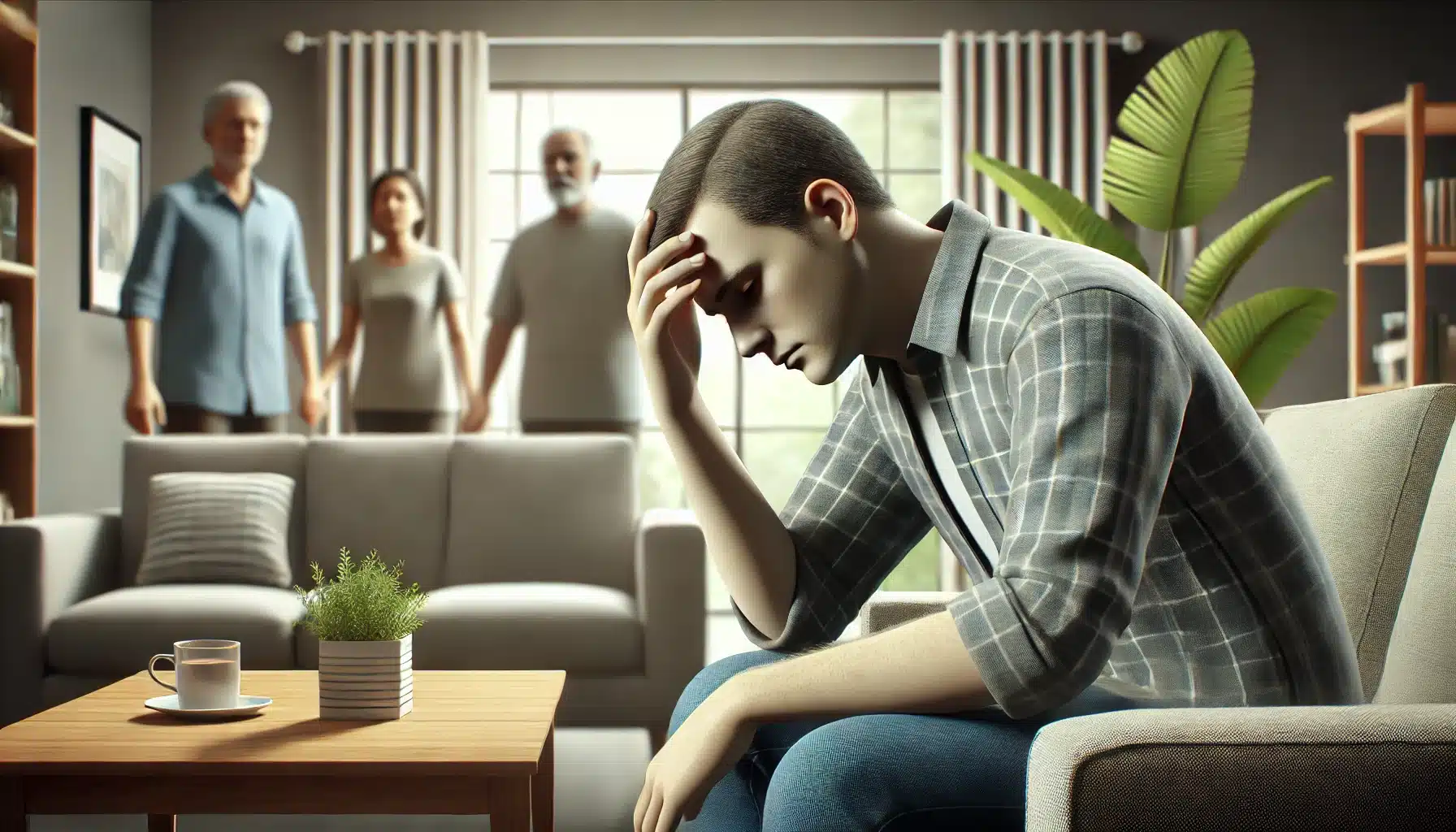What is Dizziness?
Dizziness is a broad term used to describe a range of sensations that can make a person feel lightheaded, unsteady, or as if the world around them is spinning. Recognizing serious dizziness symptoms is crucial because, while many cases of dizziness are mild and short-lived, some can be signs of more severe underlying conditions that require immediate medical attention. Dizziness itself is not a disease but rather a symptom of a variety of possible health issues, ranging from simple dehydration to more complex neurological or circulatory problems.

One of the most challenging aspects of dizziness is that it can affect people differently. For some, it may feel like a fleeting sensation that passes within moments, while for others, dizziness can be a chronic issue that impacts their daily lives. Recognizing serious dizziness symptoms early is key to preventing the condition from worsening. Symptoms often vary in intensity, and sometimes, dizziness can lead to falls or other injuries if not addressed properly. The key is to understand the potential causes and take appropriate steps to identify the severity of the condition.
Definition of Dizziness
Dizziness, by definition, is the sensation of feeling faint, unsteady, or disoriented. It is often used as an umbrella term that encompasses a variety of specific conditions, including vertigo, lightheadedness, and disequilibrium. Recognizing serious dizziness symptoms often starts with identifying whether the dizziness is accompanied by other signs, such as nausea, vomiting, or difficulty walking, which could indicate a more serious health issue. In many cases, dizziness results from momentary issues, such as standing up too quickly or being dehydrated, but persistent or recurring dizziness should never be ignored.
How Common is Dizziness?
Dizziness is an extremely common complaint, particularly among older adults, and is one of the most frequent reasons people visit their healthcare provider. It is estimated that about 20% of adults experience dizziness at some point in their lives, with a wide range of possible causes. Recognizing serious dizziness symptoms early, particularly in individuals with risk factors for heart disease or stroke, is crucial for timely intervention. While dizziness itself is often harmless, in some cases, it can be a red flag for more serious conditions that require further investigation.
Common Causes of Dizziness
Understanding the common causes of dizziness is an important step in being able to recognize serious dizziness symptoms before they lead to more severe issues. Dizziness can be triggered by a wide variety of factors, from minor problems like dehydration to more serious conditions such as heart disease. Identifying the underlying cause is crucial for determining the appropriate treatment and preventing further complications.

One of the most frequent causes of dizziness is inner ear problems. The inner ear plays a vital role in maintaining balance, and when it is disrupted, dizziness and balance issues can arise. Conditions such as benign paroxysmal positional vertigo (BPPV), Meniere’s disease, and labyrinthitis are common culprits. **Recognizing serious dizziness symptoms** in cases of inner ear problems is essential because untreated balance issues can worsen over time and affect quality of life.
Inner Ear Problems
The inner ear is responsible for detecting movement and changes in position, and when it is not functioning properly, it can lead to dizziness and vertigo. Conditions like BPPV cause brief, intense bouts of vertigo triggered by changes in head position. Meniere’s disease, on the other hand, can cause episodes of severe dizziness that may last for hours. Recognizing dizziness symptoms that originate from inner ear problems can help prevent these conditions from causing permanent balance issues.
Neurological Causes
Neurological disorders, including migraines, multiple sclerosis, or even strokes, can also lead to dizziness. In these cases, recognizing serious dizziness symptoms is especially important as they can signal more significant underlying health concerns. Neurological causes often present with other symptoms, such as confusion, weakness, or visual disturbances. If dizziness is accompanied by these additional symptoms, immediate medical evaluation is crucial.
Circulatory Issues
Another common cause of dizziness is poor blood circulation. Conditions such as hypotension (low blood pressure) and heart arrhythmias can limit blood flow to the brain, leading to dizziness. **Recognizing serious dizziness symptoms** related to circulatory issues is important, especially when dizziness is triggered by standing up quickly or exertion. In such cases, ensuring that blood pressure and heart rate are properly managed can prevent dizziness from becoming a chronic issue.
- Low blood pressure (hypotension): Can cause lightheadedness when standing up quickly.
- Heart arrhythmias: Irregular heartbeats can limit blood flow, leading to dizziness.
- Dehydration: A lack of fluids can reduce blood volume, contributing to feelings of dizziness.
Each of these causes highlights the importance of identifying and managing underlying conditions that may lead to dizziness. By addressing these issues early, you can reduce the likelihood of developing more severe health problems.
Serious Dizziness Symptoms You Shouldn’t Ignore
While dizziness is often temporary and harmless, it’s crucial to recognize serious dizziness symptoms that may indicate a more significant health issue. Some types of dizziness can signal underlying conditions such as stroke, heart disease, or neurological disorders. If dizziness is accompanied by other concerning symptoms, immediate medical evaluation is necessary to rule out life-threatening conditions.
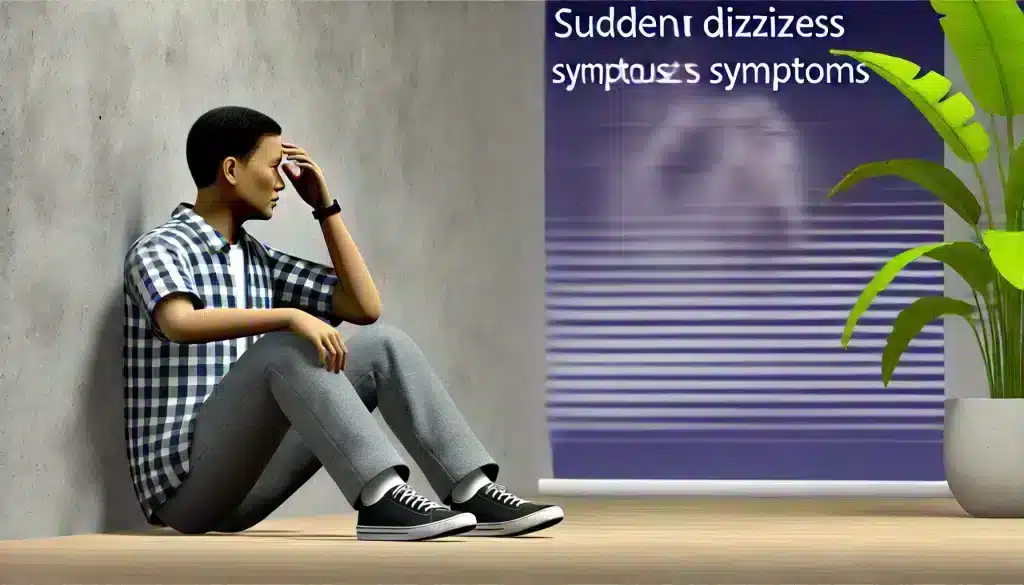
Serious dizziness symptoms can be subtle but should never be ignored. Recognizing these symptoms early is critical to prevent further complications. When dizziness occurs alongside additional warning signs, such as sudden weakness, slurred speech, or loss of vision, it could indicate a stroke. Similarly, dizziness coupled with chest pain or shortness of breath could be a sign of a cardiovascular problem.
When is Dizziness a Sign of a Serious Condition?
It’s important to understand when dizziness is more than just a passing symptom. In some cases, it can be an early sign of a stroke, especially if it’s accompanied by symptoms such as confusion, numbness, or difficulty walking. **Recognizing serious dizziness symptoms** in the context of stroke or heart disease can be life-saving. Another red flag is if dizziness occurs frequently or lasts for an extended period without improvement.
- Sudden onset of dizziness with severe headache or confusion
- Dizziness combined with slurred speech or facial drooping
- Dizziness that leads to difficulty walking or loss of balance
Symptoms that Require Immediate Medical Attention
Not all dizziness requires emergency care, but there are specific situations in which you should seek immediate help. **Recognizing serious dizziness symptoms** that occur suddenly or are associated with fainting, chest pain, or a rapid heartbeat is critical. These symptoms could point to serious cardiovascular or neurological conditions. In these cases, it’s vital to go to the nearest emergency room to prevent further complications.
If dizziness is accompanied by chest pain, severe shortness of breath, or sudden vision changes, it may be a sign of a heart attack or stroke. These conditions require urgent medical attention, and the faster you act, the better the outcome will be. Additionally, dizziness that is severe enough to cause falls or injuries should also be evaluated immediately, especially in older adults.
Types of Dizziness: Vertigo, Disequilibrium, and More
Dizziness is a broad term that encompasses various conditions, each with distinct characteristics. To accurately recognize serious dizziness symptoms, it’s essential to understand the different types of dizziness. Each type can have different causes and implications for your health. By distinguishing between these types, you can better communicate your symptoms to a healthcare provider and get the appropriate treatment.
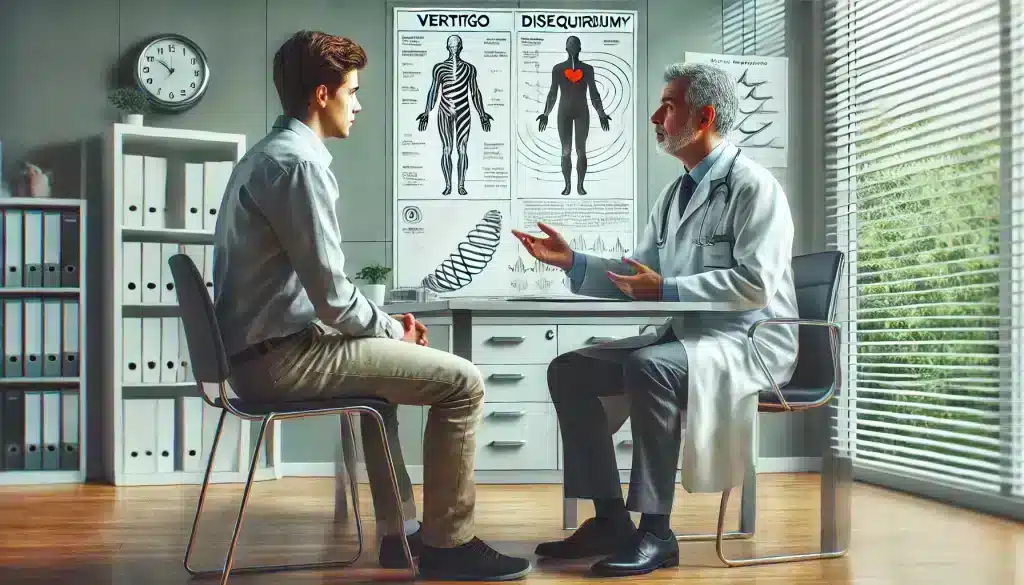
Vertigo, disequilibrium, and presyncope are the most common forms of dizziness, each presenting with unique sensations. While these conditions can overlap in symptoms, the underlying causes often vary significantly. Recognizing the type of dizziness you’re experiencing can help in determining the severity and potential causes, guiding you toward the correct treatment path.
Vertigo
Vertigo is a sensation that you or your surroundings are spinning or moving when there is no actual movement. It is often caused by inner ear problems, such as benign paroxysmal positional vertigo (BPPV) or vestibular neuritis. **Recognizing serious dizziness symptoms** related to vertigo is important, especially if it interferes with your balance or leads to falls. Vertigo may be triggered by sudden head movements or changes in position and can last from a few minutes to several hours.
- Spinning sensation: Feels like you or the environment is moving.
- Triggered by head movement: Sudden changes in head position often worsen symptoms.
- Associated with inner ear issues: Commonly linked to BPPV or Meniere’s disease.
Disequilibrium
Disequilibrium is characterized by a loss of balance or stability, often described as feeling unsteady or off-balance. This type of dizziness is typically associated with problems in the musculoskeletal or nervous system. **Recognizing serious dizziness symptoms** involving disequilibrium is crucial, especially if it leads to difficulty walking or frequent falls. It may be triggered by neurological conditions or impaired coordination, and patients often describe it as a feeling of being “unbalanced” rather than the spinning sensation experienced with vertigo.
Presyncope and Lightheadedness
Presyncope refers to the sensation of feeling faint or lightheaded, as though you are about to pass out. This type of dizziness is often related to cardiovascular issues, such as low blood pressure or heart arrhythmias, which limit blood flow to the brain. **Recognizing serious dizziness symptoms** in cases of presyncope is vital, as it may indicate underlying heart problems. Lightheadedness may be temporary and resolve quickly, but persistent or recurring symptoms require further investigation.
- Feeling faint: A sensation of being about to pass out, often associated with heart or blood pressure issues.
- Short-lived or persistent: While lightheadedness may pass quickly, chronic symptoms need medical evaluation.
- Cardiovascular connection: Often related to heart health or blood flow problems.
Diagnosing Dizziness: What to Expect?
Proper diagnosis of dizziness requires a detailed evaluation to determine the underlying cause, especially when you are trying to recognize serious dizziness symptoms. Dizziness can result from a wide variety of conditions, making it important for healthcare providers to gather as much information as possible about your symptoms, medical history, and overall health. Accurate diagnosis is key to ensuring effective treatment and preventing further complications.
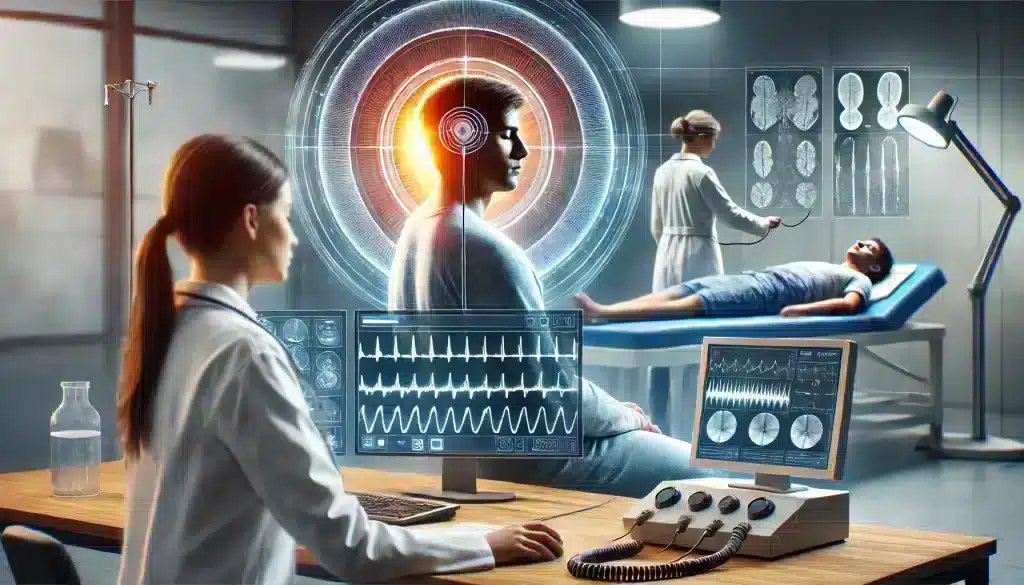
When you visit a healthcare provider for dizziness, the diagnostic process usually involves several steps. These may include a review of your symptoms, a physical exam, and a series of tests designed to identify the root cause of your dizziness. In some cases, imaging or blood tests may be necessary to rule out more serious conditions like heart disease or stroke. Recognizing serious dizziness symptoms and sharing detailed information with your doctor will help guide the diagnostic process.
Medical History and Symptom Tracking
The first step in diagnosing dizziness is a thorough review of your medical history and the specific symptoms you are experiencing. It is important to keep track of when your dizziness occurs, how long it lasts, and what seems to trigger it. **Recognizing serious dizziness symptoms** is easier when you have detailed records of your episodes. Your doctor will likely ask questions about your balance, any recent illnesses, and whether you have experienced nausea, headaches, or visual disturbances alongside the dizziness.
- Track symptoms: Keep a record of when dizziness occurs and any potential triggers.
- Note associated symptoms: Be aware of additional symptoms like nausea, headache, or blurred vision.
- Provide a detailed history: Share information about your medical history, including any medications you are taking.
Diagnostic Tests for Dizziness
Several tests may be conducted to diagnose the cause of dizziness, depending on your symptoms and medical history. Common diagnostic tools include balance tests, hearing tests, and imaging studies like MRI or CT scans. Blood tests may also be ordered to check for underlying conditions such as anemia or infection. In some cases, specialized tests like electronystagmography (ENG) or videonystagmography (VNG) may be used to evaluate the function of your inner ear.
- Balance tests: Assess your ability to maintain stability and coordination.
- Imaging tests: MRI or CT scans may be used to check for structural problems in the brain or inner ear.
- Blood tests: Help identify issues like low blood sugar, anemia, or infection that may cause dizziness.
Accurate diagnosis is the first step in successfully treating dizziness. By providing your healthcare provider with as much information as possible and undergoing the necessary tests, you can work together to recognize serious dizziness symptoms and address the underlying cause effectively.
Treatment Options for Dizziness
Once the cause of your dizziness has been identified, your healthcare provider will recommend the most appropriate treatment plan. Understanding and recognizing serious dizziness symptoms early can help ensure that treatment is both timely and effective. The treatment options for dizziness vary widely depending on the underlying condition, and they may include medications, physical therapy, or lifestyle changes. In some cases, more specific treatments such as surgery may be necessary, particularly if the dizziness is related to structural issues in the inner ear or brain.

Treatment aims not only to relieve the immediate sensation of dizziness but also to address the root cause. For those with chronic dizziness or balance issues, managing the condition long-term may involve a combination of therapies and ongoing medical care. Recognizing serious dizziness symptoms and seeking early treatment can improve outcomes significantly, reducing the impact of dizziness on your daily life.
Medications for Dizziness
In many cases, medications are the first line of treatment for dizziness. Antihistamines, such as meclizine, can be effective in treating dizziness caused by inner ear problems, such as vertigo. Other medications, such as anti-nausea drugs, may be prescribed to manage symptoms like vomiting or nausea that often accompany dizziness. If dizziness is related to an underlying heart condition or neurological issue, more specific medications such as beta-blockers or anti-seizure medications may be necessary.
- Antihistamines: Commonly used to treat dizziness related to inner ear issues, such as vertigo.
- Anti-nausea medications: Help alleviate nausea and vomiting caused by dizziness.
- Beta-blockers: Used in cases where dizziness is linked to cardiovascular problems.
Physical Therapy and Balance Exercises
For individuals who experience dizziness due to balance issues or vertigo, physical therapy can be an effective treatment option. Vestibular rehabilitation is a type of physical therapy specifically designed to help patients with balance disorders. It involves exercises that improve the brain’s ability to process signals from the inner ear and other sensory systems, helping to restore balance and reduce dizziness.
These exercises are tailored to the individual’s specific needs and can significantly improve quality of life for those suffering from chronic dizziness. Recognizing serious dizziness symptoms early and starting physical therapy can prevent the condition from worsening, allowing for better long-term management.
- Vestibular rehabilitation: A specialized form of physical therapy that helps improve balance and reduce dizziness.
- Balance exercises: Tailored exercises that strengthen the body’s ability to maintain equilibrium.
- Coordination training: Helps those with neurological dizziness regain stability.
For some individuals, combining medication with physical therapy offers the best results. By addressing both the symptoms and the underlying causes of dizziness, these treatment options can significantly improve your ability to function and enjoy daily activities without the constant disruption of dizziness.
Lifestyle Changes to Manage Dizziness
In addition to medications and physical therapy, certain lifestyle changes can play a key role in managing dizziness. Recognizing serious dizziness symptoms is important, but making long-term adjustments to your daily routine can also help reduce the frequency and severity of dizziness episodes. These changes often involve improvements in diet, hydration, stress management, and physical activity, all of which contribute to better balance and overall health.

By addressing lifestyle factors that may be contributing to dizziness, such as poor diet, dehydration, or high stress levels, you can take control of your condition. Recognizing that lifestyle changes can prevent or lessen dizziness symptoms is crucial in maintaining long-term health and minimizing disruptions to your daily life.
Diet and Hydration
A well-balanced diet and proper hydration are essential for preventing dizziness, particularly if the condition is related to blood sugar levels or dehydration. **Recognizing serious dizziness symptoms** caused by dehydration or low blood sugar can help you adjust your diet to include more nutrient-rich foods and regular fluid intake. Skipping meals or consuming too much caffeine or sugar can lead to blood sugar imbalances, which in turn can trigger dizziness.
- Stay hydrated: Drinking plenty of water throughout the day can prevent dizziness caused by dehydration.
- Avoid skipping meals: Regular meals help keep blood sugar levels stable and prevent lightheadedness.
- Limit caffeine and sugar: Both can cause fluctuations in blood sugar, contributing to dizziness.
Managing Stress and Anxiety
Stress and anxiety are common triggers for dizziness, particularly in individuals prone to panic attacks or generalized anxiety disorder. **Recognizing serious dizziness symptoms** related to stress is vital for finding effective ways to manage your mental health. Techniques such as deep breathing, meditation, and yoga can be helpful in reducing stress levels, improving balance, and preventing dizziness episodes.
Chronic stress can also lead to poor sleep and fatigue, both of which can exacerbate dizziness. By prioritizing relaxation and stress management, you can prevent the onset of dizziness linked to anxiety. Additionally, creating a structured routine with regular sleep, healthy meals, and physical activity can greatly reduce stress-related dizziness symptoms.
- Deep breathing exercises: Can help calm the nervous system and prevent dizziness.
- Meditation and mindfulness: Reduces anxiety and improves mental clarity.
- Regular sleep: Ensuring adequate rest can prevent fatigue-related dizziness.
These lifestyle changes, when combined with proper medical treatment, can help you take control of your dizziness and improve your overall quality of life. **Recognizing serious dizziness symptoms** early, along with making simple adjustments to your daily routine, will aid in better long-term management of the condition.
When to Seek Emergency Medical Help?
While many cases of dizziness are harmless, there are times when it signals a more severe medical condition. Knowing when to seek emergency care is crucial for those who recognize serious dizziness symptoms. If dizziness comes on suddenly, is severe, or is accompanied by other alarming symptoms, it could indicate a medical emergency such as a stroke, heart attack, or a serious inner ear condition.
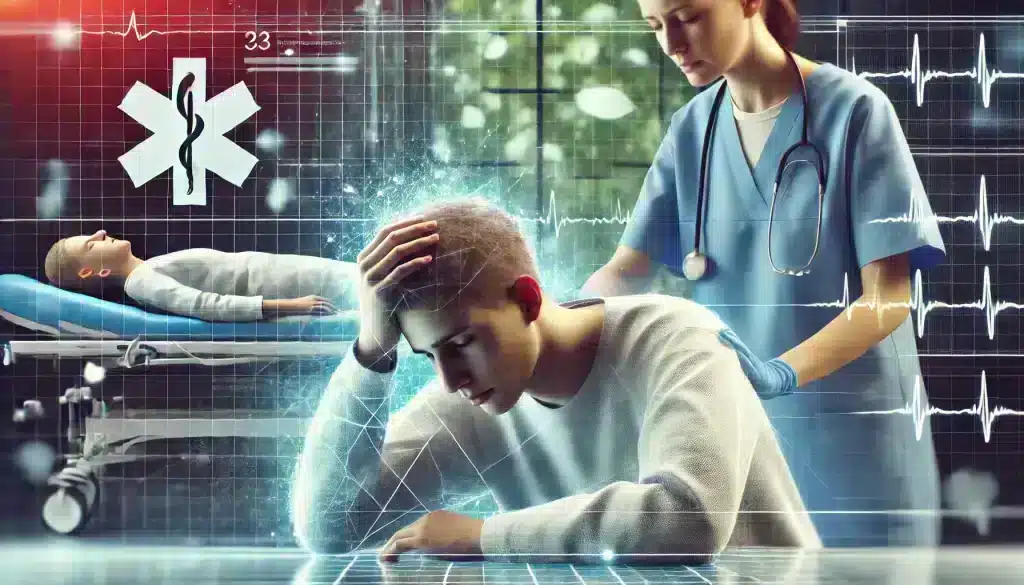
Being able to distinguish between mild dizziness and more serious symptoms can save your life. While occasional dizziness may not require immediate attention, certain signs should never be ignored. Recognizing serious dizziness symptoms, particularly when accompanied by slurred speech, confusion, or chest pain, can help you act quickly and seek the medical care you need.
Warning Signs of Serious Dizziness
If your dizziness occurs with any of the following symptoms, it’s important to seek emergency medical help right away:
- Sudden dizziness that starts abruptly and is intense in nature.
- Severe headache alongside dizziness, which could signal a stroke or aneurysm.
- Chest pain, shortness of breath, or rapid heartbeat, indicating potential heart issues.
- Slurred speech or confusion, which are common stroke symptoms that require urgent medical attention.
- Loss of vision or difficulty walking, which could be signs of a neurological emergency.
Recognizing these warning signs early can make all the difference in preventing long-term damage or even saving your life. If any of these symptoms occur, it’s essential to call emergency services or go to the nearest emergency room immediately.
Preparing for an Emergency Visit
In the event of a medical emergency related to dizziness, being prepared can help ensure that you receive the best care. Recognizing serious dizziness symptoms is the first step, but being able to communicate your symptoms clearly to healthcare providers is equally important. If you experience dizziness with any of the serious symptoms mentioned above, try to take note of when the dizziness started, how long it has lasted, and any other symptoms that appeared at the same time.
- Document symptoms: Note when the dizziness began, its intensity, and any other symptoms such as headache or vision changes.
- Share medical history: Provide details about your health history, including medications you’re taking and any pre-existing conditions like heart disease or neurological disorders.
- Act quickly: In cases of suspected stroke or heart attack, time is critical. Call for emergency help as soon as possible.
Recognizing serious dizziness symptoms and seeking immediate care can prevent complications and improve your chances of a full recovery. Don’t hesitate to act if your dizziness is accompanied by any life-threatening signs.
Frequently Asked Questions (FAQ)
Dizziness is a common yet often misunderstood symptom. Here, we address some of the most frequently asked questions to help you recognize serious dizziness symptoms and take the necessary steps for prevention and treatment.
Can Dizziness Be a Sign of a Heart Condition?
Yes, dizziness can sometimes indicate a heart-related issue. **Recognizing serious dizziness symptoms** is important when they are accompanied by chest pain, shortness of breath, or an irregular heartbeat. In such cases, dizziness may signal problems like heart arrhythmias or low blood pressure, which reduce blood flow to the brain. If dizziness is persistent or severe and occurs with these symptoms, seeking medical attention is essential to rule out heart disease or other cardiovascular problems.
What is the Difference Between Vertigo and Dizziness?
Vertigo is a specific type of dizziness where you experience the sensation that you or your surroundings are spinning, even though there is no actual movement. **Recognizing serious dizziness symptoms** such as vertigo is crucial, especially if it is accompanied by balance issues or nausea. Dizziness, on the other hand, is a broader term that includes feelings of lightheadedness, unsteadiness, or faintness. Vertigo often results from inner ear problems, while dizziness can have many different causes, including dehydration, circulatory issues, or neurological conditions.
When Should I See a Doctor for Dizziness?
It’s important to see a doctor if dizziness is persistent, severe, or accompanied by other concerning symptoms. **Recognizing serious dizziness symptoms** that occur alongside warning signs like confusion, slurred speech, chest pain, or difficulty walking requires immediate medical attention. Even if your dizziness is mild but lasts for an extended period or disrupts your daily activities, a healthcare provider can help identify the underlying cause and recommend appropriate treatment.
Can Stress and Anxiety Cause Dizziness?
Yes, stress and anxiety are common triggers for dizziness. During periods of intense stress or anxiety, the body’s “fight or flight” response can lead to hyperventilation, changes in blood pressure, or increased muscle tension, all of which can contribute to feelings of dizziness. **Recognizing serious dizziness symptoms** related to stress can help you manage your mental health and prevent these episodes. Techniques like deep breathing, mindfulness, and regular physical activity can reduce stress-related dizziness.
Is Dizziness a Symptom of a Stroke?
Dizziness can be a symptom of a stroke, especially when it is sudden and accompanied by other warning signs such as difficulty speaking, confusion, weakness on one side of the body, or loss of vision. **Recognizing serious dizziness symptoms** in the context of a potential stroke is critical. If you or someone around you experiences dizziness along with any of these symptoms, seek emergency medical help immediately, as timely treatment is crucial in preventing long-term damage or death from a stroke.
